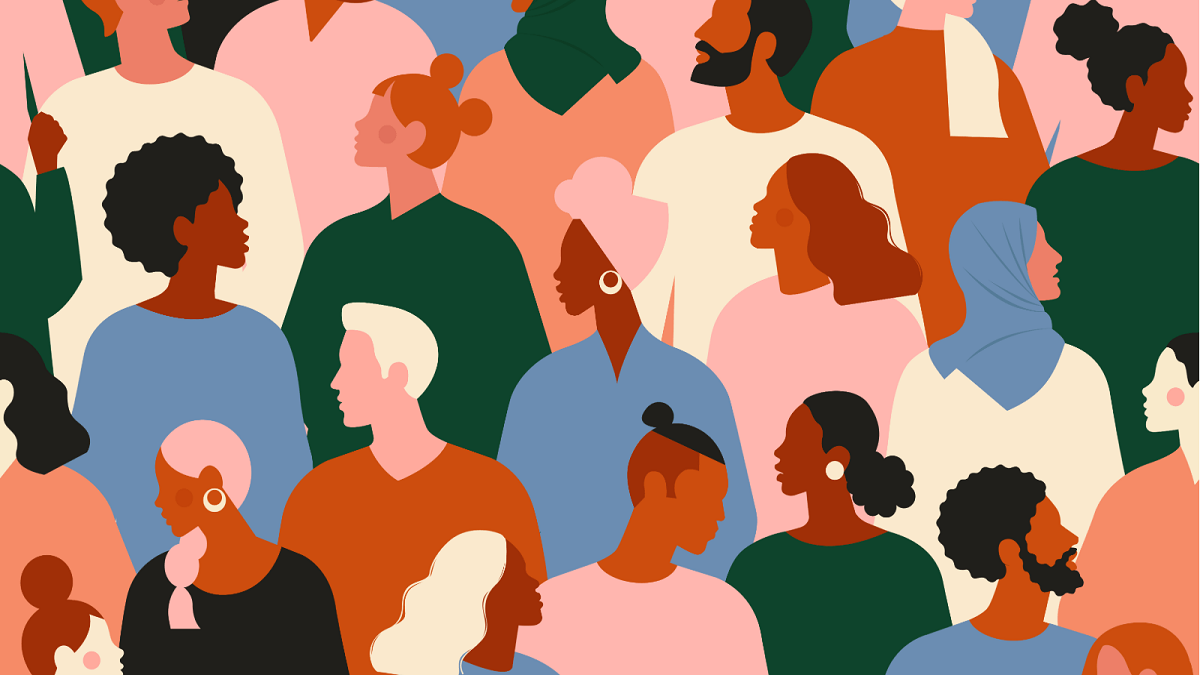Experiencing discomfort in social situations is a prevalent challenge affecting individuals worldwide. Social anxiety disorder (SAD) impacts approximately 7.1% of U.S. adults, with symptoms often emerging during childhood or adolescence. Similarly, a global study found that over one-third (36%) of respondents met the criteria for SAD and struggled to find the tips to stop feeling uncomfortable, highlighting its widespread nature.
These feelings can significantly hinder one’s personal and professional life. However, with deliberate effort and effective strategies—such as challenging negative thoughts, practicing mindfulness, and gradually facing feared social situations—it is possible to alleviate these discomforts and engage in social interactions with greater ease and confidence.
Ways To Stop Feeling Uncomfortable Around People

1. Cultivate Self-Awareness and Positive Self-Talk
A crucial step in tips to stop feeling uncomfortable is acknowledging your feelings and understanding their underlying causes. Reflecting on past experiences can help identify specific triggers contributing to your unease. Engaging in positive self-talk involves reminding yourself of your strengths and past successes, which can shift your focus from perceived shortcomings to your inherent value.
This practice fosters a more positive outlook in social settings. For instance, if public speaking often makes you anxious, recalling instances where you’ve communicated effectively can reinforce your capability. Incorporating self-compassion involves treating yourself with kindness and understanding, acknowledging that everyone experiences anxiety and that it’s a natural response.
Gradually exposing yourself to social situations, starting with less intimidating ones, can also help build confidence over time. Additionally, setting realistic goals and celebrating small victories can further enhance your self-assurance in social interactions.
2. Prepare and Rehearse Social Interactions
Anticipating potential social scenarios by preparing topics of conversation and questions can significantly alleviate anxiety and enhance your confidence during interactions. By rehearsing these interactions mentally or with trusted friends or family members, you create a clear framework for engagement, making social situations feel more predictable and manageable.
This preparation allows you to navigate conversations with greater ease, reducing the likelihood of awkward pauses or misunderstandings. For instance, if you’re attending a networking event, preparing a concise introduction about yourself and anticipating questions others might ask can boost your confidence.
This proactive approach enables you to engage more comfortably, fostering meaningful connections and reducing feelings of self-consciousness. Also, incorporating grounding techniques, such as deep breathing or focusing on physical sensations, can help redirect your focus from anxiety to the present moment, further enhancing your social experience.
By integrating these answers to how to stop feeling uncomfortable, you can transform potentially stressful social situations into opportunities for positive engagement, gradually building your confidence and social skills over time.
3. Develop Active Listening Skills
Shifting your focus from personal anxieties to a genuine interest in others can significantly enhance social interactions and reduce self-consciousness. Active listening involves fully engaging with the speaker, understanding their message, and responding thoughtfully. This approach not only fosters deeper connections but also diverts attention from perceived imperfections, easing discomfort.
For instance, during a conversation, focusing entirely on the speaker’s words—rather than planning your response—can lead to more meaningful exchanges and alleviate anxiety. When individuals feel understood, it can decrease feelings of isolation, reducing stress levels.
Moreover, studies have shown that active listening can activate the brain’s reward system, enhancing the listener’s experience and motivation. By practicing active listening, you not only improve your communication skills but also create a more comfortable environment for yourself and others, leading to more fulfilling social interactions.
4. Adopt Open and Confident Body Language
Non-verbal cues are essential components of social interactions and can significantly impact how we are perceived by others. Body language, such as maintaining eye contact, offering genuine smiles, and adopting open postures, plays a vital role in conveying confidence and approachability.
These non-verbal signals not only influence how others perceive us but also shape how we view ourselves in social settings. For instance, standing tall with shoulders back and making eye contact during conversations can project confidence, helping you feel more at ease and engaged in the interaction.
Additionally, maintaining an open posture—such as uncrossing your arms and facing the speaker—signals receptiveness and warmth, making the conversation flow more smoothly. When you consciously adjust your body language, it can enhance your self-esteem, reduce anxiety, and encourage positive responses from others.
By incorporating these simple yet powerful nonverbal cues, you can improve your social experiences and foster stronger connections with those around you. It is one of the best tips to stop feeling uncomfortable.
5. Engage in Activities That Boost Self-Esteem
Participating in hobbies or activities that you enjoy or excel at can be effective tips to stop feeling uncomfortable and improve your comfort in social situations. Whether it’s sports, arts, music, or volunteering, engaging in these activities can enhance your sense of accomplishment and provide you with natural conversation starters.
When you immerse yourself in an activity that you are passionate about, you not only feel a sense of personal achievement, but you also build connections with like-minded individuals. For example, joining a local art class allows you to express your creativity and communicate with others who share similar interests, fostering a sense of community and belonging.
These shared experiences create an environment of understanding and support, which can make social interactions feel more comfortable. By surrounding yourself with people who appreciate your interests, you build confidence in your ability to connect with others, thus making social situations feel less daunting and more enjoyable.
6. Practice Relaxation Techniques
Incorporating relaxation techniques such as deep breathing, meditation, or yoga into your daily routine can be an effective way to manage anxiety and promote a sense of inner calm. These practices are scientifically proven to reduce stress, improve emotional regulation, and help you feel more grounded in the present moment.
By setting aside time each day to engage in deep breathing exercises, such as inhaling slowly for four counts, holding for four counts, and exhaling for four counts, you activate the parasympathetic nervous system, which helps calm the body’s stress response. Similarly, mindfulness meditation offers an opportunity to clear your mind and focus on the present, reducing worry about future social interactions.
Yoga also combines mindful movement with breathing, offering both physical and mental relaxation. Over time, these practices can help lower overall stress levels, improve mental clarity, and boost your confidence in social situations, allowing you to engage more comfortably and without feeling overwhelmed.
7. Challenge Negative Thoughts
Identifying and questioning negative beliefs about yourself and your social abilities is a crucial answer to how to stop feeling uncomfortable. Often, we hold onto unrealistic or exaggerated thoughts, such as thinking, “I always say the wrong thing,” which can create unnecessary barriers in social situations.
The key to overcoming these limiting beliefs is cognitive restructuring—replacing negative thoughts with more balanced and realistic ones. For example, instead of dwelling on a past awkward conversation, try reframing the thought to something like, “Sometimes I may misspeak, but I also have meaningful and engaging conversations.”
This shift in perspective helps reduce self-criticism and encourages a healthier, more realistic self-view. Also, maintaining a journal where you document positive social interactions can serve as a powerful reminder of your social strengths and successes. Reflecting on these moments can help you build confidence and reinforce positive self-beliefs, making it easier to engage in social situations with a greater sense of ease and assurance.
8. Set and Respect Personal Boundaries
Understanding your limits and communicating them clearly to others is an essential aspect of maintaining your mental and emotional well-being in social settings. Setting boundaries allows you to protect yourself from overextending, which can often lead to burnout, exhaustion, and increased discomfort in social situations.
It’s important to recognize when you need to take a step back and give yourself the space to recharge. By respecting your boundaries, you not only take care of your well-being but also set a positive example for others, demonstrating the importance of self-care and mutual respect in relationships.
For example, if you feel overwhelmed by frequent social engagements, it’s perfectly okay to politely decline invitations, prioritizing your need for rest or personal time. This ensures you maintain a healthy balance, preventing social fatigue and allowing you to approach future interactions with a clear mind and renewed energy, ultimately leading to more enjoyable and meaningful social experiences.
9. Seek Professional Support if Needed
If feelings of discomfort persist and significantly impact your daily life, it’s important to consider seeking help from a mental health professional. Social anxiety can be debilitating, affecting various aspects of your personal and professional life. Seeking professional support, such as therapy, can provide the guidance and tools necessary to overcome these challenges.
Cognitive-behavioral therapy (CBT) is particularly effective in treating social anxiety, as it focuses on identifying and reframing negative thought patterns that contribute to anxiety. Through CBT, you can learn to challenge irrational fears, replace them with more balanced perspectives, and gradually build confidence in social situations.
One common technique used in CBT is exposure therapy, where a therapist helps you gradually face social situations that cause anxiety. By slowly increasing your exposure to these scenarios, you can desensitize yourself to the triggers and reduce the intensity of your fear. Over time, this approach can help you feel more comfortable and confident in social settings.
Wrapping Up
Implementing tips to stop feeling uncomfortable in social situations takes time, patience, and consistent effort. It’s important to acknowledge that progress is rarely immediate, and setbacks are a natural part of the journey. There may be times when you feel you’ve taken a step backward after making some progress, but that’s completely normal.
Social anxiety, like any challenge, requires continuous practice and learning from each experience. It’s crucial to celebrate small victories along the way. For example, if you manage to initiate a conversation with a stranger or attend an event despite feeling anxious, take a moment to recognize and celebrate your achievement. These small wins help build momentum and contribute to your overall growth.
In addition to celebrating progress, it’s essential to remain compassionate with yourself throughout the process. Self-criticism can hinder growth, so approach your social challenges with kindness and patience. Remember that it’s okay to have moments of discomfort, and they don’t define your ability to improve. Seeking support is another important step in the process.
Whether it’s talking to a trusted friend, joining a support group, or working with a therapist, seeking help when needed can accelerate your progress. Embrace these growth opportunities, as they will allow you to build resilience, gain new insights, and gradually gain confidence in your social interactions. Over time, you’ll find that these efforts lead to a more comfortable, fulfilling, and confident social life.
FAQ
Q: What makes me uneasy when I speak to others?
A: In situations where they might be observed, assessed, or judged by others, such as speaking in front of an audience, meeting new people, dating, going on a job interview, responding to a question in class, or having to speak to a cashier in a store, a person with social anxiety disorder experiences symptoms of fear or anxiety.
Q: Why does being in public make me feel so uneasy?
A: Social anxiety often begins in infancy. A person may experience emotional discomfort and self-consciousness when others observe or evaluate them. They may worry about appearing silly, making a mistake, receiving criticism, or being made fun of.
Q: What is the term for dread of people?
A: Anthropophobia is the dread of humans. It is often considered a distinct phobia even if it is not a recognized clinical condition.












I’m not that much of a online reader to be honest but your blogs really nice, keep it up! I’ll go ahead and bookmark your website to come back later on. Cheers
Thank you so much for your kind words! I’m thrilled to hear that you enjoyed the blog, even if you’re not a big online reader. I appreciate the bookmark and look forward to having you back anytime! Cheers! 😊
I am continuously looking online for tips that can assist me. Thanks!
Glad to hear that! We’re happy the content could help you. Stay tuned for more useful tips.
This website online is mostly a stroll-via for the entire info you wished about this and didn’t know who to ask. Glimpse right here, and you’ll positively uncover it.